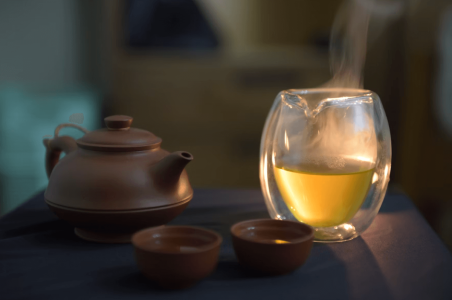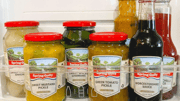Supermarkets Stir the Pot: Popular tea brand at risk of being pushed out of Australia
- Replies 59
There's nothing quite like the comforting warmth of a steaming cup of tea to start your day, and for many of us, the perfect blend is crucial. But what happens when your favourite tea brand is in jeopardy of disappearing from the shelves?
In Australia, tea drinkers may soon have to say goodbye to one of their beloved brands as a bitter price dispute between Dilmah Tea and supermarket giants Coles and Woolworths heats up.
Apparently, the manufacturers of the high-quality, single-origin Ceylon tea bags that many Aussies have grown to love are refusing to give in to the supermarkets' demands for discounts.
Dilhan Fernando, the CEO of Dilmah Tea, has stated that the supermarkets are putting the future of their partnership at risk by refusing to pay a premium for the superior quality of their tea.
If negotiations fail, Dilmah may have no choice but to stop supplying its tea to Australian grocery chains, leaving tea lovers across the country in the lurch.

Despite its worldwide reputation as the 10th biggest tea brand, Dilmah is facing significant difficulties in the Australian market. The company has not recorded a profit in Australia since 2009, and its market share is steadily declining. In the past five years alone, sales in the country have plummeted from $37 million to just $29 million.
Mr Fernando has publicly criticised Australian supermarkets, citing their 'unfair trading system' as a significant obstacle to his company's success. He believes that producers need to be fairly compensated for their products to enable them to maintain their commitment to quality.
'The producer needs to be empowered to offer a product with passion where corners are not cut. That can only happen when there is a fair price paid for the product,' Mr Fernando stated in an interview with The Australian.
'Consumers are looking for quality. But the directions we are being pushed in are an abandonment of this… It is crazy. We are being forced to chase our tail to deliver the next big thing when what we have in our hands is so substantial.'
Dilmah Tea, with its presence in over 100 countries worldwide, has been a household name in Australian supermarkets since its first deal with Coles in 1988. However, the company's commitment to sustainability and ethical sourcing has put them at odds with major Australian supermarkets, who are looking for cheaper deals.
Despite this, Mr Fernando, whose father established the company, is refusing to compromise on the quality and single-origin nature of their products in order to provide a lower price.
The company's unwavering commitment to their values has earned them a loyal following of consumers who appreciate their focus on quality and sustainability. According to Mr Fernando, consumers are looking for high-quality, single-origin teas, but this is often ignored by supermarkets looking to maximise profits.
The tea company's unwavering commitment to maintaining the quality and sustainability of its products is not just about satisfying consumers' demands, but also about supporting the Sri Lankan communities that supply the tea. Around 95 per cent of Dilmah's products are exported, making it an important contributor to the Sri Lankan economy.
As Sri Lanka faces tough economic times with high inflation rates, the tea industry has become even more critical to the country's recovery. Tea production employs around 10 per cent of the Sri Lankan workforce, making it an essential source of income for many families.
Mr Fernando believes that the company has a responsibility to support the communities and protect the environment in which its tea is produced, especially in the face of climate change. He insists that maintaining the quality of their products is critical, even if it means being removed from Australian supermarket shelves.
The tea industry is not only essential to the Sri Lankan economy, but it also represents a rich cultural heritage that has been passed down from generation to generation.
If Australian supermarkets force Dilmah to compromise on its commitment to quality and sustainability, it could have devastating consequences for Sri Lankan tea producers and their communities. Many small-scale tea producers rely on fair trade practices and premium prices to sustain their livelihoods, and without this support, they could be pushed out of the market.
'You would be undermining and destroying an industry that has sustained millions over 150 years,' said Mr Fernando.

The future availability of Dilmah Tea in Australia is uncertain as the company remains locked in a bitter price dispute with supermarket giants Coles and Woolworths.
If the supermarkets continue to push for lower prices and refuse to pay a premium for Dilmah's high-quality, single-origin Ceylon tea bags, the Sri Lankan company may soon stop supplying its tea to Australian grocery chains.

So, what does this mean for our beloved morning cup of tea?
News sources have contacted both Coles and Woolworths for comment, but none have been given so far. For now, we suggest stocking up (within reason) if you're worried about being left without your favourite brew!
We'll be keeping a close eye on this developing situation and will provide updates as they become available.
Members, we'd love to hear your thoughts on this news story. Are you a fan of Dilmah Tea and concerned about the prospect of losing access to your favourite brew? Or do you think that the supermarkets are justified in seeking discounts from manufacturers?
This also brings us to a larger question: Are supermarkets becoming increasingly 'greedy' at the expense of underpaid manufacturers? It's an important issue that affects not just the tea industry but many others as well.
Do you think that companies like Dilmah should compromise on their commitment to sustainability and ethical sourcing to appease the demands of supermarkets? Or do you believe that supermarkets should pay a fair price to support the efforts of manufacturers and producers?
Let us know your thoughts in the comments section below. We look forward to hearing your perspectives on this matter!
In Australia, tea drinkers may soon have to say goodbye to one of their beloved brands as a bitter price dispute between Dilmah Tea and supermarket giants Coles and Woolworths heats up.
Apparently, the manufacturers of the high-quality, single-origin Ceylon tea bags that many Aussies have grown to love are refusing to give in to the supermarkets' demands for discounts.
Dilhan Fernando, the CEO of Dilmah Tea, has stated that the supermarkets are putting the future of their partnership at risk by refusing to pay a premium for the superior quality of their tea.
If negotiations fail, Dilmah may have no choice but to stop supplying its tea to Australian grocery chains, leaving tea lovers across the country in the lurch.

A beloved tea brand could soon be leaving the shelves of Coles and Woolworths. Credit: Unsplash/Max Chen.
Despite its worldwide reputation as the 10th biggest tea brand, Dilmah is facing significant difficulties in the Australian market. The company has not recorded a profit in Australia since 2009, and its market share is steadily declining. In the past five years alone, sales in the country have plummeted from $37 million to just $29 million.
Mr Fernando has publicly criticised Australian supermarkets, citing their 'unfair trading system' as a significant obstacle to his company's success. He believes that producers need to be fairly compensated for their products to enable them to maintain their commitment to quality.
'The producer needs to be empowered to offer a product with passion where corners are not cut. That can only happen when there is a fair price paid for the product,' Mr Fernando stated in an interview with The Australian.
'Consumers are looking for quality. But the directions we are being pushed in are an abandonment of this… It is crazy. We are being forced to chase our tail to deliver the next big thing when what we have in our hands is so substantial.'
Dilmah Tea, with its presence in over 100 countries worldwide, has been a household name in Australian supermarkets since its first deal with Coles in 1988. However, the company's commitment to sustainability and ethical sourcing has put them at odds with major Australian supermarkets, who are looking for cheaper deals.
Despite this, Mr Fernando, whose father established the company, is refusing to compromise on the quality and single-origin nature of their products in order to provide a lower price.
The company's unwavering commitment to their values has earned them a loyal following of consumers who appreciate their focus on quality and sustainability. According to Mr Fernando, consumers are looking for high-quality, single-origin teas, but this is often ignored by supermarkets looking to maximise profits.
The tea company's unwavering commitment to maintaining the quality and sustainability of its products is not just about satisfying consumers' demands, but also about supporting the Sri Lankan communities that supply the tea. Around 95 per cent of Dilmah's products are exported, making it an important contributor to the Sri Lankan economy.
As Sri Lanka faces tough economic times with high inflation rates, the tea industry has become even more critical to the country's recovery. Tea production employs around 10 per cent of the Sri Lankan workforce, making it an essential source of income for many families.
Mr Fernando believes that the company has a responsibility to support the communities and protect the environment in which its tea is produced, especially in the face of climate change. He insists that maintaining the quality of their products is critical, even if it means being removed from Australian supermarket shelves.
The tea industry is not only essential to the Sri Lankan economy, but it also represents a rich cultural heritage that has been passed down from generation to generation.
If Australian supermarkets force Dilmah to compromise on its commitment to quality and sustainability, it could have devastating consequences for Sri Lankan tea producers and their communities. Many small-scale tea producers rely on fair trade practices and premium prices to sustain their livelihoods, and without this support, they could be pushed out of the market.
'You would be undermining and destroying an industry that has sustained millions over 150 years,' said Mr Fernando.
Key Takeaways
- Dilmah Tea is threatening to pull its products from Australian supermarket shelves amid a price dispute with Coles and Woolworths.
- The Sri Lankan company's CEO said major supermarkets are demanding discounts and refusing to pay a premium for their hand-crafted, single-origin Ceylon tea bags.
- Dilmah has reportedly not made a profit in Australia since 2009, and its market share is dwindling.
- The company refuses to dilute its commitment to sustainability and ethical sourcing in order to provide a lower price to Australian supermarkets.
The future availability of Dilmah Tea in Australia is uncertain as the company remains locked in a bitter price dispute with supermarket giants Coles and Woolworths.
If the supermarkets continue to push for lower prices and refuse to pay a premium for Dilmah's high-quality, single-origin Ceylon tea bags, the Sri Lankan company may soon stop supplying its tea to Australian grocery chains.

The future availability of Dilmah Tea in Australia remains uncertain. Credit: Unsplash/Matthew Henry.
So, what does this mean for our beloved morning cup of tea?
News sources have contacted both Coles and Woolworths for comment, but none have been given so far. For now, we suggest stocking up (within reason) if you're worried about being left without your favourite brew!
We'll be keeping a close eye on this developing situation and will provide updates as they become available.
Members, we'd love to hear your thoughts on this news story. Are you a fan of Dilmah Tea and concerned about the prospect of losing access to your favourite brew? Or do you think that the supermarkets are justified in seeking discounts from manufacturers?
This also brings us to a larger question: Are supermarkets becoming increasingly 'greedy' at the expense of underpaid manufacturers? It's an important issue that affects not just the tea industry but many others as well.
Do you think that companies like Dilmah should compromise on their commitment to sustainability and ethical sourcing to appease the demands of supermarkets? Or do you believe that supermarkets should pay a fair price to support the efforts of manufacturers and producers?
Let us know your thoughts in the comments section below. We look forward to hearing your perspectives on this matter!







